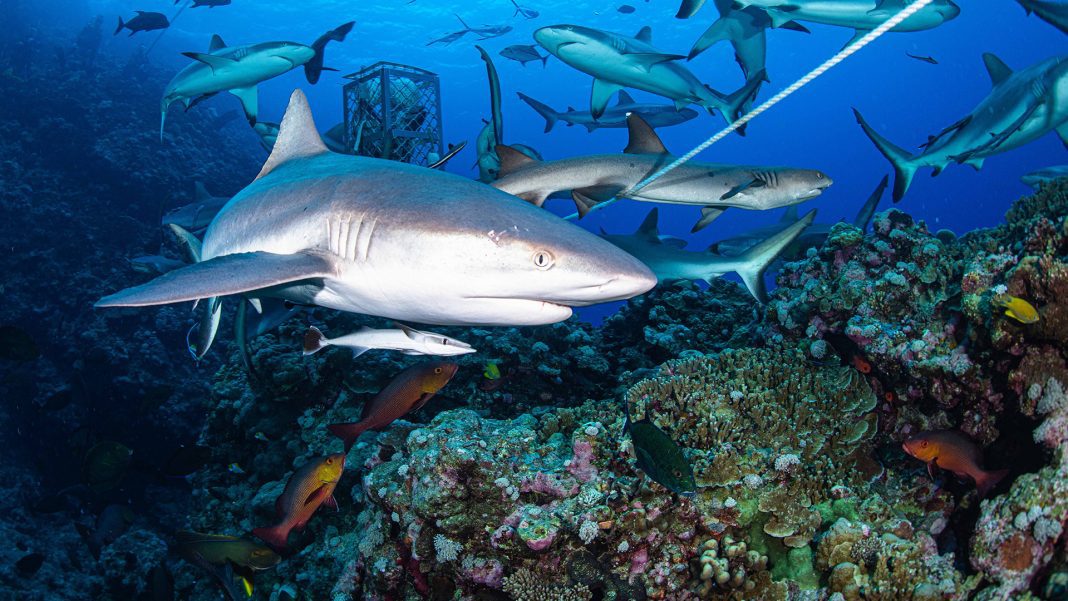Contributed by Whitsunday Conservation Council
IT IS unfortunate that many people base their knowledge of sharks on Hollywood movies such as Jaws, where they are portrayed as mindless creatures with no role on this planet other than to eat people.
Of course, nothing could be further from the truth.
Sharks are one of nature’s most important and fascinating creatures. Over time, sharks have proved to be very successful at surviving.
They have been roaming the seas for more than 400 million years. In that time, the dinosaurs have come and gone but the sharks continue on.
Sharks play several important roles in the ocean environment. Probably the best known role would be that of the apex predator.
Apex predators are carnivores (meat-eating animals) at the top of the food chain, that hunt other animals as prey.
They seldom have natural predators of their own in their ecosystem.
On the Great Barrier Reef, shark species that are commonly considered apex predators include tiger sharks, hammerhead sharks and bull sharks.
Apex predators are important because they influence the food web, by regulating populations of their prey, thereby preventing the collapse of lower levels in the food chain and maintaining the overall health of the ecosystem.
Moreover, they contribute to the genetic diversity of marine populations, ensuring resilience in the face of environmental changes.
Without sharks, the intricate web of life in the oceans would unravel with catastrophic consequences for all marine life and, in turn, humans.
Despite their ecological importance, sharks face numerous threats, primarily driven by human activities.
It is important to note that sharks tend to grow slowly, live longer, reproduce later in life and have fewer offspring.
These characteristics make them vulnerable to population declines when they are overfished or lose habitat.
On the Great Barrier Reef, shark population size and health are still a relative mystery, as there was little research done until after 1980.
Current research indicates that, across the board, the shark population is in decline, while the whale shark, hammerhead shark, and bull shark are listed as vulnerable or endangered on the International Union for Conservation of Nature’s Red List of Threatened Species.
To address these threats, and ensure the long-term survival of sharks, concerted conservation efforts are essential.
Marine Protected Area (MPAs), or Green Zones, play a crucial role in safeguarding shark populations by providing sanctuary and refuge from fishing pressure.
Public awareness and education also play a pivotal role in shark conservation. Many people believe that sharks are a threat to humans but, in reality, the opposite is true.
There is more risk of being struck by lightning than being attacked by a shark.
The conservation of sharks is not just about saving a single species; it is about preserving the entire marine ecosystem.
By recognising the intrinsic value of sharks, and taking action to protect them, we can secure a future where these fascinating creatures continue to roam the oceans for generations to come and keep the oceans a healthier place.






